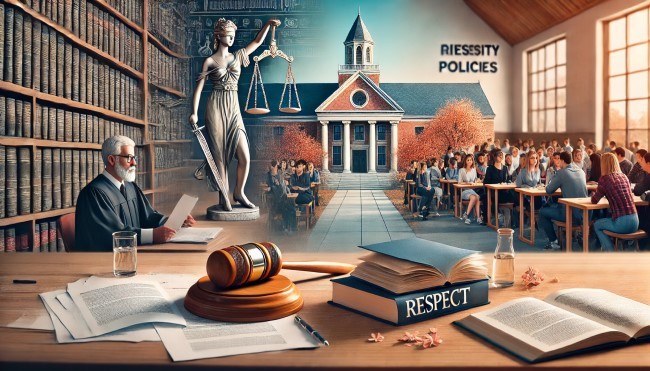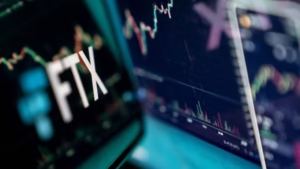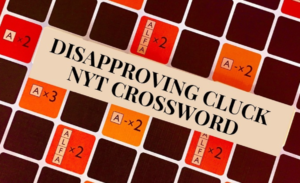
C.W. Park Usc Lawsuit
In November 2023, former University of Southern California (USC) professor C.W. Park C.W. Park Usc Lawsuit a high-profile lawsuit against the institution, alleging wrongful termination, retaliation, and discrimination. This legal action has drawn considerable attention due to its serious implications concerning sexual harassment and discriminatory practices within academic institutions.
This blog aims to provide a thorough analysis of the C.W. Park C.W. Park Usc Lawsuit offering an in-depth look into the case’s complexities. We will review Park’s career trajectory at USC, the events leading up to his termination, and the specific claims he has made. Additionally, we will examine USC’s response to the lawsuit, including their public statements and legal strategies. As the case progresses, we will keep you informed about new developments, shedding light on the legal maneuvers and potential outcomes for both parties involved.
Furthermore, we will explore the broader ramifications of this lawsuit for USC and the higher education sector as a whole. The case could prompt significant changes in how universities address issues of sexual harassment and discrimination. By situating this lawsuit within the context of similar cases nationwide, we aim to highlight systemic problems in academic settings. Our goal is to deliver a detailed and engaging narrative that emphasizes the importance of justice, transparency, and accountability in higher education.
Background History Of The Case
The C.W. Park C.W. Park Usc Lawsuit against USC reveals a multifaceted case that extends beyond individual grievances to address broader systemic issues. This legal action is marked by allegations from multiple accusers, including Jane Doe and three additional women, each presenting serious claims against Park. These accusers allege that Park made inappropriate remarks and engaged in non-consensual physical interactions, indicating a troubling pattern of behavior.
The ongoing legal proceedings have brought to light the complexities and nuances of the case. Each accuser’s testimony contributes to a deeper understanding of the allegations, suggesting that the issues may be more widespread than initially perceived. This context is essential for grasping the full impact of the lawsuit, which has significant implications not only for C.W. Park C.W. Park Usc Lawsuit and USC but also for the broader discourse on sexual harassment and accountability within higher education institutions.
Claims Of Retaliation And Wrongful Termination
At the core of C.W. Park’s lawsuit against USC is the allegation that his firing was a retaliatory response to his stance against sexual harassment and discrimination. Park asserts that his legal troubles began after he reported an incident of student-on-faculty sexual harassment to the university’s Title IX office in 2019. Title IX regulations require educational institutions to investigate such claims thoroughly, and Park’s report was a protected action under federal law.
Park claims that his decision to report this misconduct triggered a series of retaliatory measures by USC, which eventually led to his dismissal in 2020. He argues that his commitment to addressing sexual harassment at C.W. Park C.W. Park Usc Lawsuit made him a target, resulting in unfair professional consequences. To prove his case, Park must establish a clear link between his termination and his engagement in protected activities, namely his efforts to combat discrimination. If he can provide convincing evidence that his dismissal was directly related to his report of sexual harassment, he may succeed in demonstrating that his termination was unlawful under Title IX and anti-discrimination statutes.
Accusations Of Discrimination
In addition to claiming retaliation, C.W. Park C.W. Park Usc Lawsuit also alleges that his termination was influenced by racial and gender discrimination. Park, an Asian American male, argues that he faced unfair treatment compared to his colleagues, which he believes was rooted in discriminatory attitudes towards his identity. He suggests that his race and gender played a substantial role in his dismissal, implying that he was evaluated more critically than other faculty members.
To substantiate his discrimination claims, C.W. Park C.W. Park Usc Lawsuit must provide evidence that he was adequately qualified for his role and that his dismissal occurred under circumstances indicative of racial or gender bias. This might involve showing that other professors from different racial or gender backgrounds were treated more favorably or presenting proof of discriminatory remarks directed at Asian American men. Park’s objective is to demonstrate to the court that his termination was significantly impacted by unlawful discrimination.
USC’s Defense
USC has firmly refuted the allegations made by C.W. Park, asserting that his termination was a result of poor job performance rather than retaliation or discrimination. The university contends that Park did not meet the required standards for his role, citing issues such as inadequate teaching performance, lack of student interaction, and failure to meet essential faculty duties as the reasons for his dismissal. USC vehemently denies any claims of retaliation or bias influencing their decision to terminate Park’s employment.
In its defense, C.W. Park C.W. Park Usc Lawsuit has submitted a motion to dismiss Park’s lawsuit, arguing that his allegations lack substantial evidence and are based on speculation. The university maintains that Park has not demonstrated that he engaged in any protected activity or that there was any unlawful retaliation or discriminatory practices involved. According to USC, the reasons for Park’s termination were purely professional and non-discriminatory, with Park’s claims being an attempt to deflect from his own professional shortcomings.
The court will need to thoroughly assess the arguments and evidence provided by both parties to determine whether Park’s claims are robust enough to warrant proceeding to trial.
Challenges For Higher Education
The C.W. Park C.W. Park Usc Lawsuit against USC carries significant implications that extend well beyond the university itself, potentially influencing higher education institutions nationwide. The case has sparked a growing movement among students considering class action lawsuits for alleged violations of Title IX, highlighting systemic issues within academic institutions. Recent legal actions, including those from current USC students and faculty, have accused the university of perpetuating a “culture of silence” regarding sexual misconduct. This has intensified the scrutiny on how universities manage such allegations.
The outcomes of C.W. Park C.W. Park Usc Lawsuit lawsuit could lead to substantial changes in how universities handle liability and accountability, especially in the face of class action claims. If the allegations of discrimination and retaliation are proven, they could set a precedent for more extensive legal actions against educational institutions. These lawsuits not only question the practices of individual universities but also raise concerns about the effectiveness of existing policies in protecting both students and staff.
This situation has a profound effect on the public’s perception of the academic sector. Controversies like these undermine confidence in the education system’s ability to uphold fairness and safety. To address these challenges, universities must take proactive measures to restore their credibility. This involves implementing transparent and responsive procedures for addressing misconduct allegations and fostering an environment of openness and accountability. By prioritizing these reforms, academic institutions can work towards rebuilding trust and demonstrating their commitment to a safe and equitable environment for everyone in their community.
Legal Proceedings And Court Battles: Unpacking The C.W. Park USC Lawsuit
The courtroom drama of the C.W. Park vs. USC lawsuit unfolded with intense scrutiny and heated arguments. Both sides presented their cases with fervor, detailing allegations of discrimination and retaliation through a series of legal maneuvers. Lawyers from each party brought forward compelling evidence, called witnesses to the stand, and navigated the high-stakes atmosphere as they sought to persuade the court.
Throughout the trial, the intricacies of Park’s claims were thoroughly examined. Testimonies were delivered, documents reviewed, and every piece of evidence scrutinized to ascertain the truth behind the accusations. The judge played a pivotal role, making critical decisions that could have a lasting impact on the case’s outcome.
The courtroom was a battleground where legal arguments clashed vigorously. Both sides mounted intense challenges and counterarguments, with the stakes rising as the litigation progressed. Observers in the courtroom understood that the case’s resolution could establish significant legal precedents affecting similar disputes in the future.
This legal confrontation transcended the immediate conflict between Park and USC. It represented a broader struggle over principles of justice and fairness. Each action and statement in court carried significant implications, reflecting the high stakes for both parties. The trial was a test of the values of accountability and integrity, with the final judgment poised to uphold these critical principles within the legal framework.
The Need For Continued Advocacy
The lawsuit filed by C.W. Park against USC, while focused on his individual allegations, highlights a larger, ongoing issue surrounding sexual harassment, discrimination, and institutional accountability. Park’s case has not only exposed his own grievances but also ignited a wider movement among student activists and women’s rights organizations. These groups see the lawsuit as a pivotal moment to advocate for significant changes within USC and the broader educational system.
This legal action serves as a powerful impetus for raising awareness about deep-seated inequalities in higher education. Advocates are using this case to push for more rigorous policies and their effective enforcement to create safer and more equitable environments for everyone in academia. The spotlight on Park’s allegations has catalyzed a movement demanding that such issues be addressed transparently and decisively, rather than being ignored or minimized.
As the lawsuit progresses, these advocates are actively tracking the developments to ensure that the institution remains accountable. Their ongoing efforts emphasize the critical importance of advocacy in effecting real change. By maintaining pressure, they aim to ensure that the challenges highlighted by Park’s case lead to substantive reforms, fostering a culture of fairness, respect, and accountability across the higher education landscape.
How The C.W. Park Lawsuit Is Shaping USC’s Reputation And Policies
The lawsuit brought by C.W. Park against USC has significantly affected the university’s reputation and prompted a thorough reassessment of its internal policies. As allegations of discrimination and retaliation emerged, they cast a considerable shadow over USC’s previously esteemed standing. The university, once celebrated for its academic excellence, now faces intensified scrutiny regarding its commitment to diversity and inclusivity. This shift in public perception highlights a growing belief that USC must undergo substantial reforms to better address discrimination and bias.
The public outcry has forced USC to critically examine its existing practices. It has become clear that the university’s current policies may fall short in addressing the complexities of discrimination and harassment effectively. This realization has sparked extensive internal discussions on how to cultivate a more inclusive and fair environment for all members of the university community—students, faculty, and staff alike. The legal dispute has emphasized the urgent need for USC to not only reassess but also enhance its efforts to promote a supportive and equitable campus culture.
In response to the backlash, USC has begun implementing meaningful changes aimed at rebuilding trust and demonstrating a sincere commitment to equality. These changes include overhauling anti-discrimination policies, bolstering diversity and inclusion training, and establishing more transparent and effective procedures for addressing complaints. University leadership recognizes that restoring its reputation hinges on its ability to address these critical issues earnestly. The ongoing repercussions of Park’s lawsuit are likely to shape USC’s future decisions and policies, pushing the institution toward increased accountability and transparency. This case stands as a crucial moment for USC, underscoring the importance of actively fostering an environment where fairness and equality are paramount.
Key Insights From The Controversy
The legal dispute involving C.W. Park and USC has revealed important lessons that extend beyond the details of this particular case. It underscores the critical need for academic institutions to foster inclusive and equitable environments to prevent discrimination and bias.
A primary lesson from this case is the importance of conducting thorough and prompt investigations into allegations of misconduct. Addressing issues quickly and effectively is essential to ensuring that all members of the academic community feel safe and respected. Transparency in these processes is also vital, as it builds trust and credibility among students, faculty, and other stakeholders.
Additionally, the lawsuit highlights the intricate power dynamics present in higher education settings. It emphasizes the responsibility of these institutions to uphold fairness and justice for everyone, irrespective of their background or identity. This situation serves as a strong reminder for universities and colleges to embed diversity, equity, and inclusion into their core values and practices.
In summary, the lessons from this controversy serve as a valuable guide for academic institutions and beyond. They stress the need for a proactive commitment to fairness and accountability. By addressing these challenges head-on, organizations can enhance their dedication to creating supportive and respectful environments where all individuals can thrive and make meaningful contributions.
FAQs
1. What are the main allegations in the C.W. Park lawsuit against USC?
C.W. Park has filed a lawsuit against USC alleging wrongful termination, retaliation, and discrimination. Park claims that his dismissal was a direct result of his reporting a sexual harassment incident, and he also alleges that his race and gender played a role in the discrimination he faced.
2. What are the specific accusations of retaliation in this case?
Park asserts that his termination was retaliatory because he reported a case of sexual harassment to USC’s Title IX office. He argues that after making this report, he faced a series of retaliatory actions leading up to his dismissal.
3. How does Park claim USC discriminated against him?
Park alleges that USC discriminated against him based on his race and gender. He contends that, as an Asian American male, he was treated unfairly compared to his peers, which he believes contributed to his termination.
4. What is USC’s response to Park’s allegations?
USC denies all allegations made by Park, asserting that his termination was due to his inadequate job performance. The university claims that Park’s claims of retaliation and discrimination are unfounded and that his dismissal was based on legitimate, non-discriminatory reasons.
5. How has the lawsuit affected USC’s reputation and internal practices?
The lawsuit has led to significant scrutiny of USC’s handling of discrimination and harassment issues. In response to the controversy, USC has begun revising its anti-discrimination policies and enhancing its diversity and inclusion training programs to rebuild trust and improve its internal practices.
6. What broader impact could this case have on higher education institutions?
The case may influence other academic institutions to reassess and strengthen their policies regarding discrimination and harassment. It highlights the need for transparency and effective handling of such issues, potentially leading to more rigorous standards and practices in higher education.
Conclusion
The C.W. Park lawsuit against USC is a pivotal case that not only addresses specific allegations of wrongful termination, retaliation, and discrimination but also raises significant questions about institutional accountability within higher education. As Park’s legal battle unfolds, it serves as a crucial reminder of the importance of addressing allegations of misconduct with transparency and urgency. The broader implications of this case underscore the need for universities to critically examine and enhance their policies and practices to foster a more inclusive and equitable environment.
The outcome of this lawsuit could have lasting effects on how academic institutions handle similar issues, highlighting the critical role of advocacy and systemic change in promoting fairness and accountability. As universities strive to rebuild trust and implement meaningful reforms, the lessons from this case will continue to shape the discourse around justice and equality in academia.
Stay in the know with the latest news and updates on: aljazeeraradio







